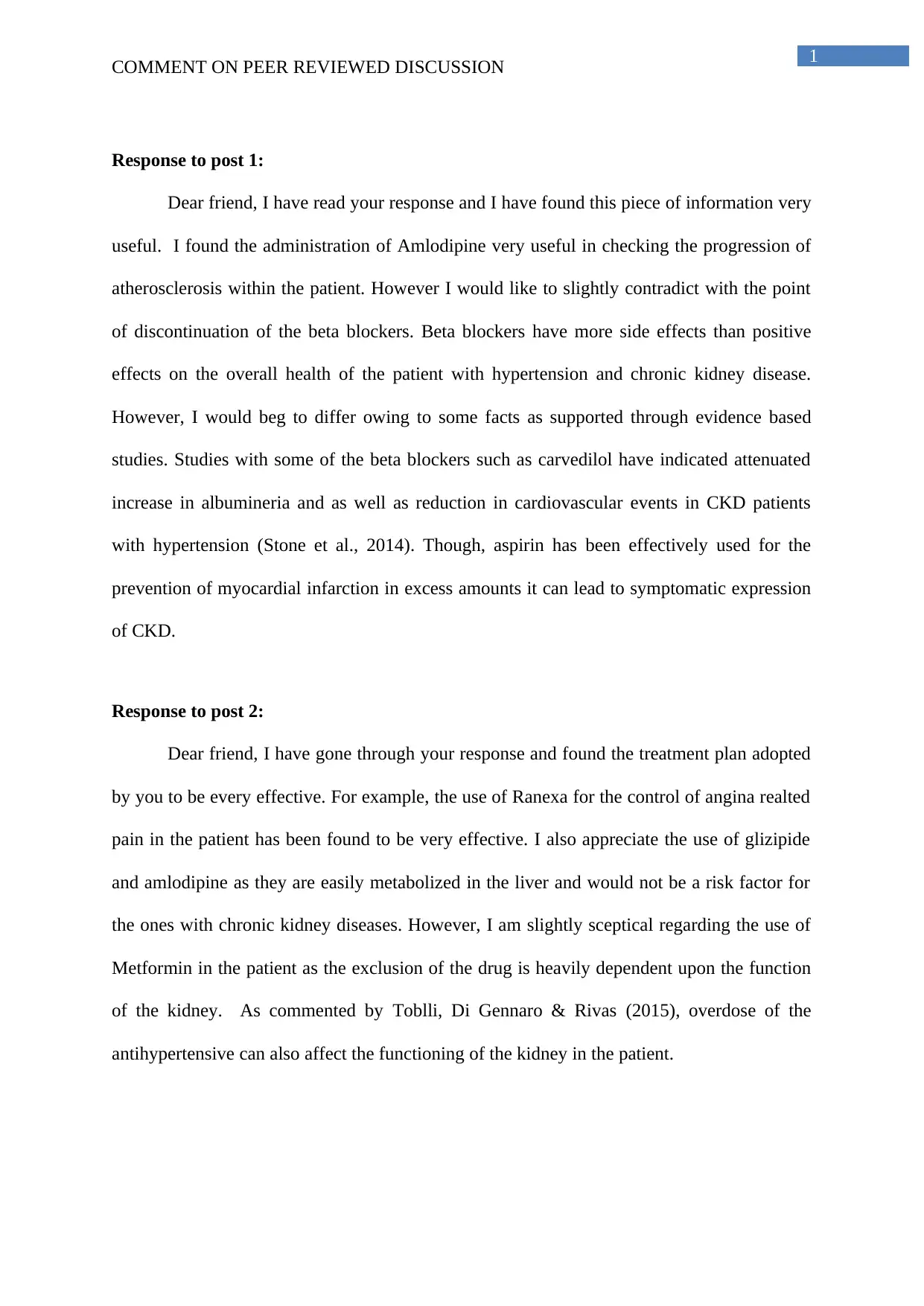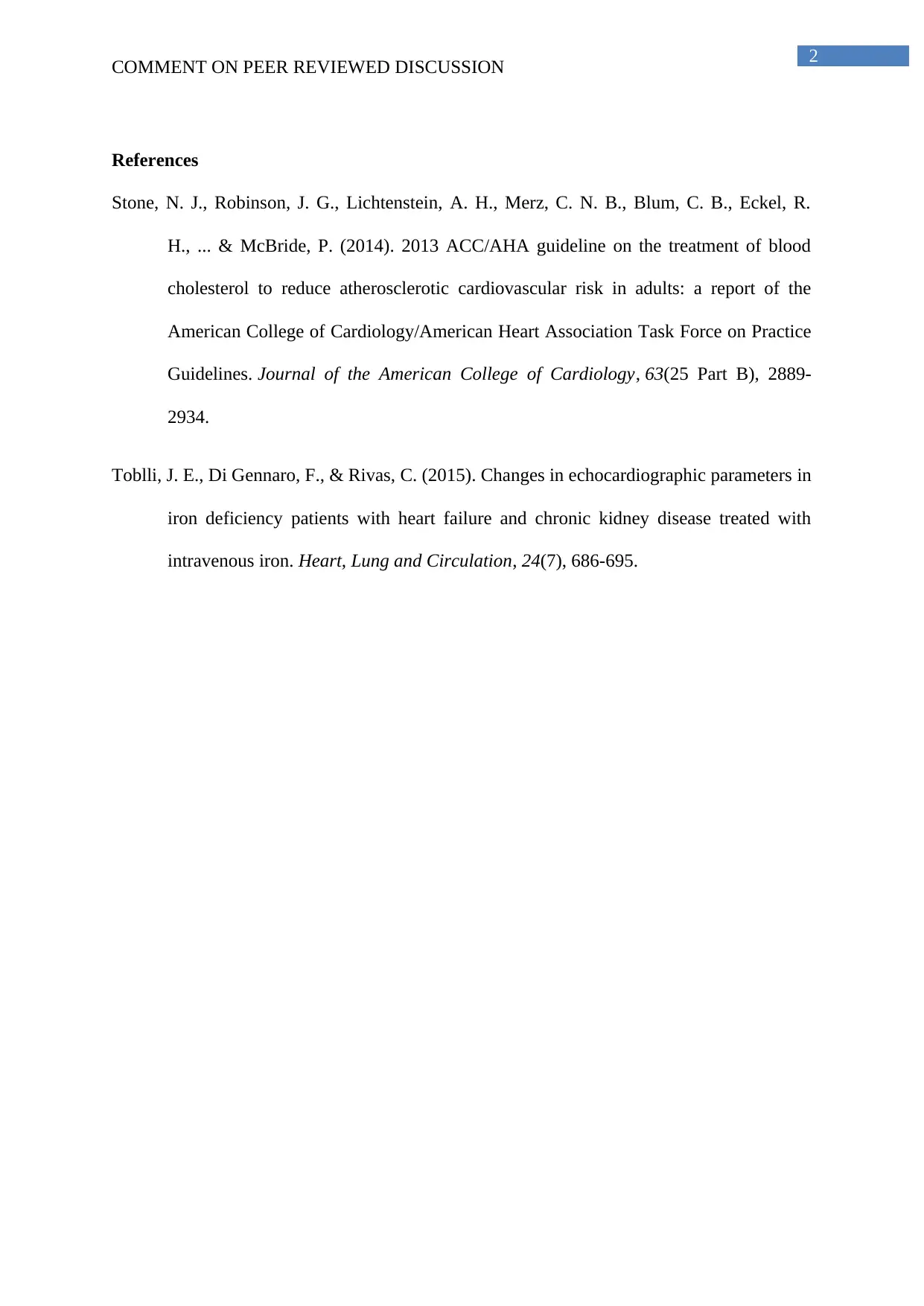Comment on Peer Reviewed Discussion: Healthcare and Research
VerifiedAdded on 2021/04/21
|3
|471
|31
Discussion Board Post
AI Summary
This assignment presents a student's response to a peer-reviewed discussion on healthcare topics. The student comments on the provided information, specifically addressing the use of Amlodipine in managing atherosclerosis and the discontinuation of beta-blockers. The student also discusses the use of carvedilol in CKD patients. The student also reviews another response and comments on the treatment plan, focusing on the use of Ranexa for angina and the use of glizipide and amlodipine, while expressing concerns about the use of Metformin. The assignment includes citations of relevant research papers.
1 out of 3




![[object Object]](/_next/static/media/star-bottom.7253800d.svg)